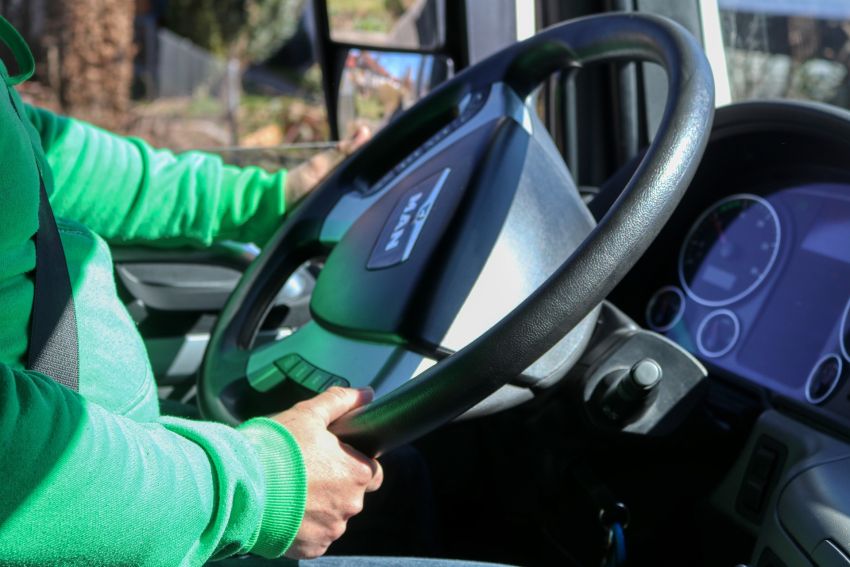
The Transport Workers Union (TWU) is pushing for strike action after talks broke down at a meeting on July 14 with Toll, which wants to impose a new workplace agreement which slashes conditions.
Almost 7000 truck drivers say their jobs are under threat after delivering the company bumper profits during the pandemic.
A Protected Action Ballot has been granted by the Fair Work Commission and the union said if the vote for strike action wins, it will likely take place in August.
Transport is a deadly industry, and corporate giant Toll is proposing to cut pay and conditions to offer wealthy retailers, like Amazon, new low rate contracts.
TWU national secretary Michael Kaine said truckies had worked harder than ever over the last year, adding that the union “delayed negotiations to assist Toll”.
“Workers are furious that demand has soared, but transport contracts are squeezed,” Kaine said. “The exploitative gig economy models are expanding in transport, such as AmazonFlex, forcing workers to suffer.”
The TWU said the agreement, proposed by Toll, will lower standards in an industry already in crisis.
Toll wants all new drivers employed as part-time workers on rates just above the award minimum and to only pay 10% superannuation — the national guarantee.
It is also pushing to outsource more work, undermining clauses in the current agreement that engage Toll employees before labour hire workers. It is refusing to ensure contractors are paying their drivers the same wages as Toll workers, despite this clause in Toll agreements.
Toll also wants to cut part-time workers’ overtime entitlements, with up to 38 hours a week extra to be paid at ordinary rates, in violation of the current award.
“Drivers know all too well what happens when conditions and pay are dragged down in transport: stressed, chronically fatigued drivers are forced to work long hours, speed and skip rest breaks, resulting in deaths and injuries on our roads,” Kaine said.
“We should be lifting standards in Australia’s deadliest industry, not pulling them down.”
TWU NSW branch secretary and lead Toll negotiator Richard Olsen said it was the workers who had “built high standards at Toll over decades”, including “through the last 18 months of sustained Christmas-level demand”.
“We know that Toll’s clients, like Amazon, have made multibillion-dollar profits throughout the pandemic …Toll workers take pride in their jobs … [they] do not take a decision to go on strike lightly, but Toll management has left them no choice,” Olsen said.
A former Toll subcontracted driver told Green Left that the dispute could lead to a big industrial confrontation.
“It is a result of a major restructuring of the transport industry during which Toll — owned by Japan Post — sold its Global Express division to Allegro after making significant losses,” they said.
“Allegro originally agreed to keep the TWU agreement with the Global Express drivers, a majority of whom are sub-contractors. Now, it is seeking drastic cuts to [drivers’] pay and conditions.” Toll is also refusing to sign a deed of transfer to ensure workers’ pay and conditions will be guaranteed at Allegro.
Workers’ wages and benefits at Toll fell this year and the company has been forced to write down the sale of Toll Express to Allegro.
Meanwhile, Toll reported a jump in income during the pandemic, $6.3 billion for the 2020–21 financial year, up from $4.7 billion the previous financial year.
Its transport costs also rose, highlighting the tight margins transport companies are forced to operate under because of major retailers’ low-cost contracts.
The TWU has filed claims on 50 retailers, demanding they lift standards to ensure fairness and safety in transport.
Five years ago, the federal government abolished an independent tribunal that was investigating risks to safety in road transport and which was mandated to hold companies, like Amazon and Aldi, to account over poor safety standards that result from their financial squeeze on transport operators and drivers.